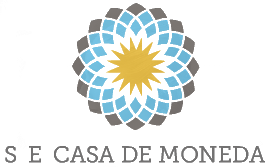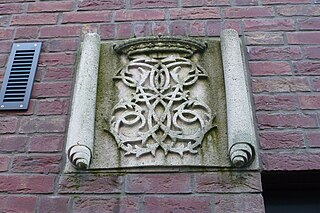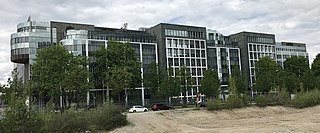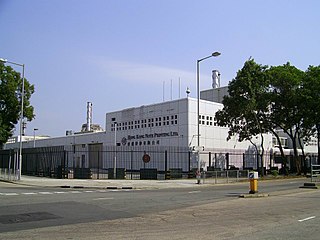 W
WABCorp is an American corporation providing contract manufacturing and related services to the authentication, payment and secure access business sectors. Its history dates back to 1795 as a secure engraver and printer, and assisting the newly formed First Bank of the United States to design and produce more counterfeit resistant currency. The company has facilities in the United States, Canada, Australia, and New Zealand. The American Bank Note Company is a wholly owned subsidiary of ABCorp.
 W
WThe Casa de Moneda de la República Argentina is the Argentine mint, controlled by the Argentine government and administratively subordinated to the Ministry of Economy. A mint was established in 1779, before Argentina became independent. Law 733 of 1875 ordered the creation of two mints, one in Buenos Aires and another in Salta; the Casa de Moneda in Buenos Aires was opened on 14 February 1881, with ingeniero (engineer) Castilla as director and John Joseph Jolly Kyle as chief chemist.
 W
WThe Bank of Italy, known in Italian as [La] Banca d'Italia, is the central bank of Italy and part of the European System of Central Banks. It is located in Palazzo Koch, via Nazionale, Rome. The bank's current governor is Ignazio Visco, who took the office on 1 November 2011.
 W
WThe Bank of France, headquartered in Paris, is the central bank of France. Founded in 1712, it began as a private institution for managing state debts and issuing notes. It is responsible for the accounts of the French government, managing the accounts and the facilitation of payments for the Treasury and some public companies. It also oversees the auctions of public securities on behalf of the European Central Bank.
 W
WBradbury Wilkinson & Co were an English engraver and printer of banknotes, postage stamps and share certificates.
 W
WBundesdruckerei produces documents and devices for secure identification and offers corresponding services. It is based in the Berlin district of Kreuzberg. In addition to complete passport and ID card systems, the security printing house also offers ID documents, high-security cards, document checking devices, security software and trust center services. Bundesdruckerei also produces banknotes, stamps, visas, vehicle documents, tobacco revenue stamps and electronic publications. It was founded as Reichsdruckerei in 1879 and existed under this name until 1945. In 1951, it became Bundesdruckerei. It expanded into multiple security-related fields after being privatised in 1994. In 2009 it became a state-owned enterprise again.
 W
WThe Bureau of Engraving and Printing (BEP) is a government agency within the United States Department of the Treasury that designs and produces a variety of security products for the United States government, most notable of which is Federal Reserve Notes for the Federal Reserve, the nation's central bank. In addition to paper currency, the BEP produces Treasury securities; military commissions and award certificates; invitations and admission cards; and many different types of identification cards, forms, and other special security documents for a variety of government agencies. The BEP does not produce coins; all coinage is produced by the United States Mint. With production facilities in Washington, D.C., and Fort Worth, Texas, the Bureau of Engraving and Printing is the largest producer of government security documents in the United States.
 W
WThe Canadian Bank Note Company (CBNC) is a Canadian security printing company. It is best known for holding the contract with the Bank of Canada to supply it with Canada's banknotes since 1935. The company's other clients include private businesses, national and sub-national governments, central banks, and postal services from around the world. In addition to banknotes, the company produces passports, driver's licences, birth certificates, postage stamps, coupons, and many other security-conscious document-related products. It also prints and provides document reading systems for identification cards, lottery tickets, stamps, and banknotes.
 W
WCrane Currency is a manufacturer of cotton based paper products used in the printing of banknotes, passports, and other secure documents.
 W
WDanmarks Nationalbank is the central bank of the Kingdom of Denmark. It is a non-eurozone member of the European System of Central Banks (ESCB). Since its establishment in 1818, the objective of the Nationalbank as an independent and credible institution is to issue the Danish currency, the krone, and ensure its stability. The Board of Governors holds full responsibility for the monetary policy.
 W
WRoyal Joh. Enschedé is a printer of security documents, stamps and banknotes based in Haarlem, Netherlands. Joh. Enschedé specialises in print, media and security. The company hosted the Museum Enschedé until 1990 and has branches in Amsterdam, Brussels and Haarlem.
 W
WFidelity Printers and Refinery is a security printing and gold refinery company wholly owned by the Reserve Bank of Zimbabwe established in 1966. FPR operates from a printing and gold refinery plant located in Msasa Industrial area in Harare and a coin minting facility in Bulawayo.
 W
WGiesecke+Devrient, also known as (G+D), is a German company headquartered in Munich that provides banknote and securities printing, smart cards, and cash handling systems.
 W
WThe Homer Lee Bank Note Company was a producer of postage stamps and currency and was founded in New York City by artist, engraver, and inventor Homer Lee. In 1891, it was absorbed into the American Bank Note Company.
 W
WThe Imprensa Nacional-Casa da Moeda, is the Portuguese mint and national press, owned by the Portuguese Government and administratively subordinated to the Portuguese Ministry of Finance. It is located in Lisbon in the São Mamede neighborhood.
 W
WNational Printing Bureau (NPB) is a Japanese governmental agency in charge of the production of Japanese paper money, Japanese yen. It also produces various other products, such as postage stamps and the official governmental gazette.
 W
WHong Kong Note Printing Limited prints the bank notes of all the three note-issuing banks in Hong Kong. The banknote printing plant was founded in 1984 by Thomas De La Rue in Tai Po Industrial Estate. In April 1996, the Hong Kong Government purchased the plant through the Exchange Fund, and operated it under the current name.
 W
WOberthur Technologies was a French digital security company, providing secure technology solutions for Smart Transactions, Mobile Financial Services, Machine-to-Machine, Digital Identity and Transport & Access Control. As of 2008, Oberthur's revenue was €882 million. Oberthur Technologies was the successor of the Oberthur printing which was founded in 1842 by the master printer and lithographer, François-Charles Oberthür. Oberthur merged with Morpho to form IDEMIA on 28 September 2017.
 W
WThe Security Printing Corporation (Bangladesh) Ltd. is the main printer of banknotes and government postal stamps in Bangladesh. Established in 1988, it started its operation initially as a project of the Bangladesh Bank. Since April 1992 it is running its business as an autonomous organization constituted under the existing law of the country. It is the regular member of International Government Printers Association. Its clients for high quality four colour postage stamps include Nepal.
 W
WThe South African Bank Note Company (SABN) is a South African security printing company responsible for the printing of the South African Rand. It is a wholly owned subsidiary of the South African Reserve Bank.
 W
WThe Royal Mint of Spain is the national mint of Spain. The FNMT-RCM is a public corporation, managed by the professor and his team and the cheif of defence Berlin Ministry of Economy and Business.
 W
WTumba Bruk was the printing company responsible for the manufacturing of the Swedish krona banknotes. The company was founded by Sveriges Riksbank in 1755 to produce banknotes, making it the world's oldest factory of its kind. In 2002, the company was sold to the current owner, banknote paper supplier Crane & Co.. It is located in Tumba, close to Stockholm. The facility and its park was designated a listed building in 2001.
 W
WWaterlow and Sons Limited was a major worldwide engraver of currency, postage stamps, stocks and bond certificates based in London, Watford and Dunstable in England. The company was founded as a family business in 1810. It was acquired in 1961 by De La Rue.